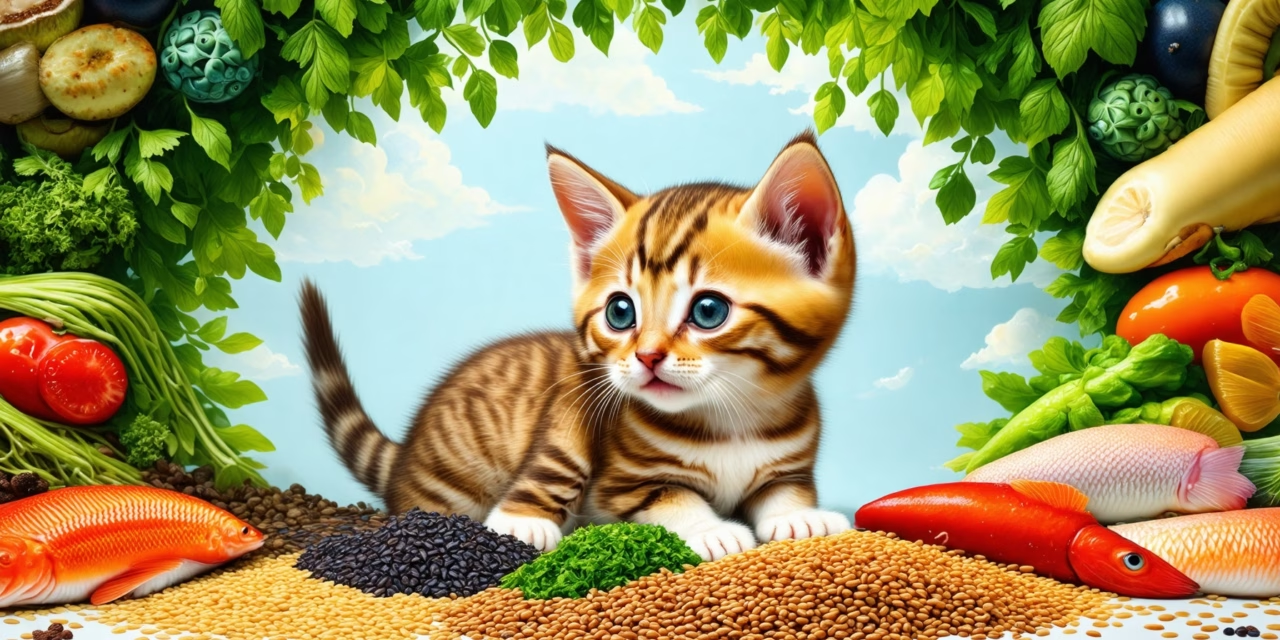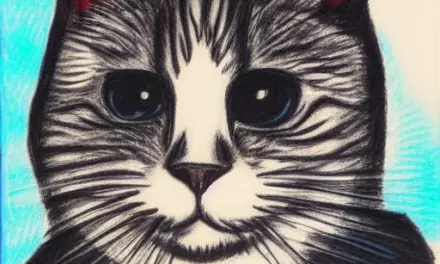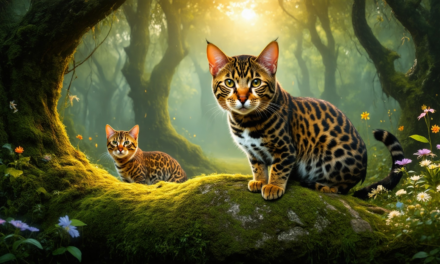Key Takeaways
- Grain free kitten food can meet the high protein and fat needs essential for your kitten’s growth and development.
- Consulting a veterinarian is crucial to determine if a grain-free diet is appropriate for your kitten, especially if they have food allergies or sensitivities.
- High-quality grain free options, like Wellness CORE and Purina, provide essential nutrients while avoiding fillers.
- Be aware of potential long-term health risks, including links to dilated cardiomyopathy (DCM) associated with certain grain-free diets.
- Wet grain free kitten food offers hydration benefits and is often more palatable, making it easier for kittens to consume.
When it comes to nurturing your new feline friend, the choice of food can be a pivotal factor in their health and happiness. In this article, we delve into the intriguing world of grain free kitten food, exploring whether it truly is the healthiest choice for your growing kitten. With insights from veterinarians, we will address common concerns surrounding grain free diets and their nutritional benefits. We will also highlight the best grain free kitten food options available, including both wet and dry varieties, to ensure your kitten receives the best possible nutrition. Additionally, we will examine the concept of grain zero and its implications for kittens with sensitive stomachs. By the end of this article, you will have a comprehensive understanding of grain free kitten food, empowering you to make informed decisions for your furry companion’s diet. Join us as we uncover the facts, dispel myths, and guide you through the top brands that cater to your kitten’s dietary needs.
Is Grain Free Food Okay for Kittens?
Understanding Grain Free Diets for Kittens
When considering grain free kitten food, it’s essential to understand the unique nutritional needs of kittens. Kittens require a diet rich in protein and fat to support their rapid growth and development. Grain-free options can meet these needs, but they must also provide essential nutrients such as taurine, vitamins, and minerals. It’s crucial to choose high-quality ingredients, prioritizing protein sources like chicken or fish while avoiding fillers that do not contribute to your kitten’s health.
Additionally, some kittens may benefit from a grain-free diet if they have specific health concerns, such as food allergies or sensitivities. However, not every kitten requires this type of diet. Consulting with a veterinarian is vital to determine the best dietary approach tailored to your kitten’s individual health status.
Nutritional Benefits of Grain Free Kitten Food
Grain-free kitten food can offer several nutritional benefits, particularly for those with dietary restrictions. Here are some key points to consider:
- Nutritional Needs: Kittens need a balanced diet that includes high protein and fat content. Grain-free foods can fulfill these requirements, provided they are formulated with essential nutrients.
- Health Considerations: For kittens with food allergies or sensitivities, grain-free diets may alleviate digestive issues and promote overall health.
- Quality of Ingredients: Opt for brands that use high-quality protein sources and adhere to AAFCO guidelines, ensuring a nutritionally complete diet.
- Potential Risks: Recent studies have raised concerns about the long-term effects of grain-free diets, particularly regarding heart health. Monitoring your kitten’s health is crucial.
- Recommendations: Brands like Wellness Core Grain Free Kitten Food and Purina offer specialized formulations that cater to kittens’ nutritional needs.
In conclusion, while grain-free food can be suitable for some kittens, it’s essential to consult with a veterinarian before making significant dietary changes. For more information on pet nutrition, check resources from the American Veterinary Medical Association (AVMA) and the Association of American Feed Control Officials (AAFCO).
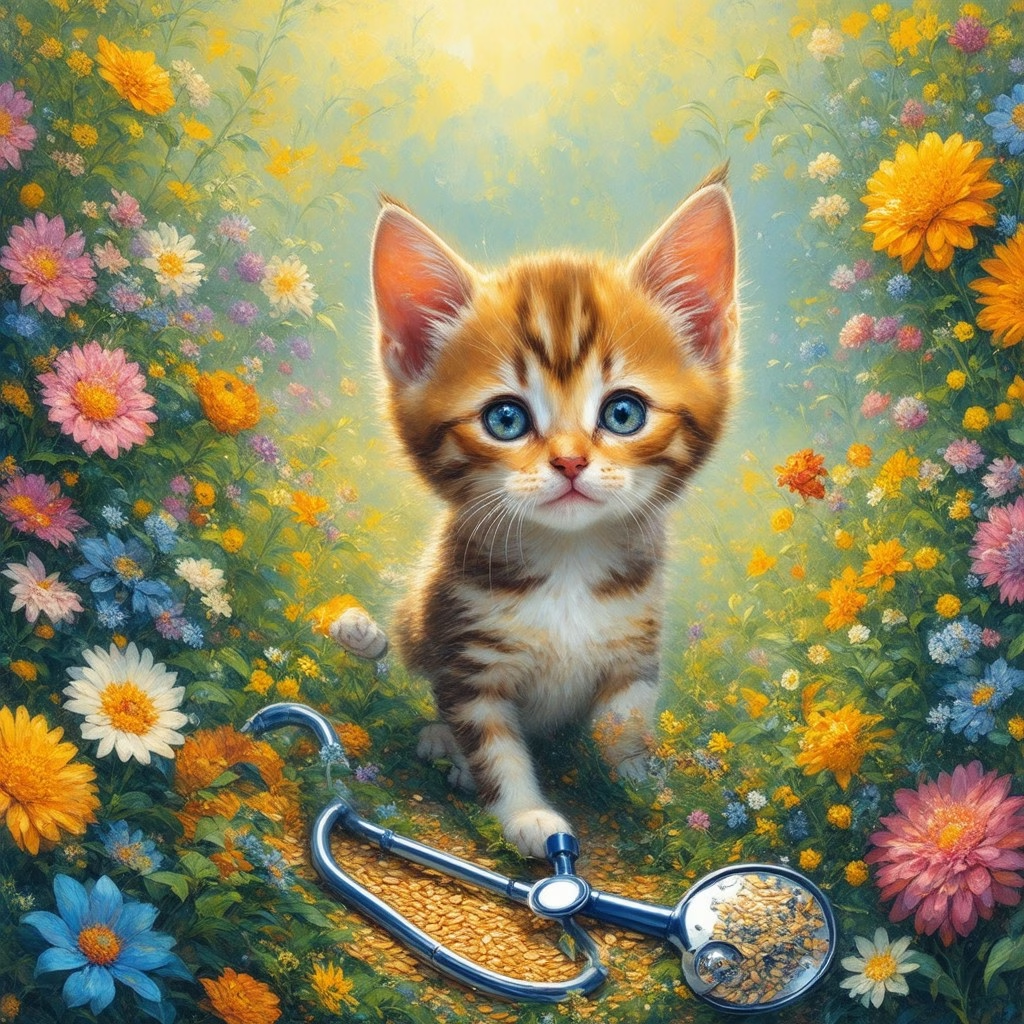
Why Do Vets Not Like Grain Free Cat Food?
Veterinarians often express concerns about grain-free cat food for several reasons, primarily linked to health implications and nutritional adequacy:
- Dilated Cardiomyopathy (DCM): Recent studies have suggested a potential association between grain-free diets and dilated cardiomyopathy in cats, a serious condition characterized by the weakening of the heart muscle. Research published in the Journal of Veterinary Internal Medicine indicates that diets high in certain ingredients, particularly those rich in peas, lentils, and potatoes, may contribute to this heart condition (Freeman et al., 2018).
- Taurine Deficiency: Grains are a source of essential amino acids, including taurine, which is crucial for maintaining heart health in cats. The absence of grains in grain-free diets may lead to taurine deficiency, increasing the risk of heart-related issues. The American Animal Hospital Association emphasizes the importance of taurine in feline diets, highlighting that a lack of this nutrient can have severe consequences (AAHA, 2020).
- Misconceptions About Carbohydrates: While cats are obligate carnivores, they can digest carbohydrates, including those found in grains. The belief that grains are merely harmful fillers is a misconception. According to the American Association of Feed Control Officials (AAFCO), grain-inclusive diets can provide balanced nutrition and are not inherently detrimental to feline health.
- Marketing Trends: The rise of grain-free diets has largely been influenced by marketing strategies that mirror human dietary trends rather than addressing genuine nutritional needs of cats. Many veterinarians argue that this trend is more about consumer perception than scientific evidence supporting the superiority of grain-free options.
- Alternative Ingredients: Grain-free foods often substitute grains with other carbohydrate sources like potatoes or legumes, which may not offer any nutritional advantage. In fact, some of these alternatives can be less digestible for cats, leading to potential gastrointestinal issues.
- Specific Allergies or Sensitivities: In rare cases, cats may have allergies to specific grains, and a grain-free diet might be appropriate for those individuals. However, such cases are uncommon, and veterinarians typically recommend grain-free diets only when necessary.
- Individualized Dietary Needs: Veterinarians may suggest grain-free food as part of a tailored treatment plan for cats with specific health conditions. It is essential to consult with a veterinarian to determine the most suitable diet based on individual health requirements.
In conclusion, while grain-free diets may be marketed as healthier options for cats, veterinarians caution against their widespread use due to potential health risks, particularly concerning heart health and nutritional balance. Always consult with a veterinarian before making significant dietary changes for your cat.
Common Concerns About Grain Free Diets for Kittens
When it comes to grain-free kitten food, several common concerns arise that pet owners should consider:
- Nutritional Balance: Grain-free kitten food may lack essential nutrients that are typically found in grain-inclusive diets. It’s crucial to ensure that any food you choose meets the nutritional standards set by AAFCO for kittens.
- Digestive Issues: Some kittens may experience gastrointestinal upset when transitioning to grain-free diets, particularly if the food contains high levels of alternative carbohydrates like peas or potatoes.
- Long-Term Health Risks: The potential link between grain-free diets and heart conditions like DCM raises concerns about the long-term health of kittens consuming these foods. Regular veterinary check-ups can help monitor any health changes.
- Cost Considerations: Grain-free kitten food can often be more expensive than traditional options. It’s important to weigh the benefits against the cost and consider whether the diet is appropriate for your kitten’s specific needs.
Ultimately, while grain-free kitten food may be appealing, it’s essential to approach it with caution and consult with a veterinarian to ensure your kitten receives a balanced and nutritious diet.
What is the healthiest cat food for kittens?
When selecting the healthiest cat food for kittens, it’s essential to consider both wet and dry options that provide balanced nutrition tailored to their developmental needs. Here are some top recommendations for 2025, based on veterinary insights:
- Iams ProActive Health Kitten Dry Cat Food
- Nutritional Composition: This formula is crafted without fillers, artificial flavors, or preservatives. It closely mimics the nutritional profile of a mother cat’s milk, providing essential nutrients like vitamin E, which bolsters the immune system.
- Key Ingredients: Contains omega-3 DHA for brain development, along with fiber and prebiotics that promote healthy digestion. Research indicates that DHA is crucial for cognitive function in growing kittens (Source: Journal of Animal Science).
- Royal Canin Kitten Dry Cat Food
- Nutritional Benefits: Specifically designed for kittens, this food includes a blend of antioxidants and vitamins to support overall health. It features a precise balance of protein and fat to ensure optimal growth.
- Digestive Health: Enriched with prebiotics and highly digestible proteins, it aids in maintaining a healthy gut flora (Source: Veterinary Clinics of North America).
- Hill’s Science Diet Kitten Wet Cat Food
- Moisture Content: This wet food option provides hydration, which is vital for kittens. It includes high-quality protein to support muscle development and is formulated with a blend of vitamins and minerals.
- Palatability: The taste is appealing to kittens, encouraging healthy eating habits from a young age (Source: American Journal of Veterinary Research).
- Purina Pro Plan Kitten Dry Cat Food
- Balanced Nutrition: This formula is rich in protein and contains live probiotics for digestive health. It also includes DHA from fish oil, which supports brain and vision development.
- Veterinary Endorsement: Many veterinarians recommend this brand for its scientifically formulated recipes that cater to the unique needs of growing kittens (Source: Veterinary Practice News).
When choosing kitten food, always consult with a veterinarian to ensure it meets your kitten’s specific health requirements and dietary preferences. Prioritizing high-quality ingredients and balanced nutrition will lay the foundation for a healthy and active life.
Top Rated Grain Free Kitten Food Options
For those considering grain free kitten food, there are several top-rated options that cater to the nutritional needs of growing kittens. Grain free diets can be beneficial for kittens with sensitivities or those requiring a more natural diet. Here are some of the best grain free kitten food choices available:
- Wellness CORE Grain Free Kitten Food: This high-protein formula is designed to support healthy growth and development, featuring real meat as the first ingredient.
- Open Farm Grain Free Kitten Food: Made with ethically sourced ingredients, this option provides a balanced diet without grains, ensuring your kitten receives essential nutrients.
- Simply Nourish Grain Free Kitten Food: This brand focuses on wholesome ingredients and offers a variety of flavors to keep your kitten interested in their meals.
- WholeHearted Grain Free Kitten Food: Available at major retailers, this food is formulated to provide complete nutrition while being gentle on sensitive stomachs.
When selecting grain free kitten food, consider your kitten’s specific dietary needs and consult with your veterinarian for personalized recommendations.
Is Grain Zero Good for Kittens?
When considering the best nutrition for our furry friends, the concept of Grain Zero in cat food has gained traction among pet owners. Grain Zero Mother & Kitten Cat Food is specifically formulated to meet the nutritional needs of kittens and nursing mothers. Here are key points to consider regarding its benefits:
- Grain-Free Formula: Grain Zero is entirely free from grains, which can lead to digestive issues or food allergies in some cats. This grain-free approach is beneficial for kittens with sensitive stomachs, as it reduces the risk of gastrointestinal discomfort.
- High-Quality Ingredients: The formula is crafted from natural, high-quality ingredients that are easily digestible. This ensures that kittens receive essential nutrients necessary for their growth and development. Key ingredients often include real meat, vegetables, and healthy fats.
- Nutritional Balance: Grain Zero is designed to provide a balanced diet, rich in protein and essential fatty acids, which are crucial for the healthy development of kittens. The inclusion of DHA (Docosahexaenoic acid) supports brain and eye development, making it an excellent choice for growing kittens.
- Veterinary Recommendations: Many veterinarians recommend grain-free diets for kittens, especially those prone to food sensitivities. Research indicates that a grain-free diet can lead to improved coat condition and overall health in young cats.
- Positive Reviews and Feedback: Pet owners have reported significant improvements in their kittens’ energy levels and coat quality after switching to Grain Zero. This feedback aligns with studies that suggest high-quality, grain-free diets can enhance feline health.
For more information on feline nutrition and dietary recommendations, consult resources from the American Association of Feed Control Officials (AAFCO) and veterinary nutritionists.
Evaluating Grain Zero Products for Kittens
When evaluating Grain Zero products for kittens, it’s essential to consider several factors that contribute to their overall health and well-being:
- Ingredient Transparency: Look for brands that provide clear information about their ingredients. High-quality protein sources should be listed first, ensuring your kitten receives the necessary nutrients.
- Life Stage Appropriateness: Ensure the product is specifically formulated for kittens. This guarantees that the food meets their unique nutritional needs during this critical growth phase.
- Digestibility: Grain-free options often enhance digestibility, which is crucial for kittens. Products that include probiotics can further support digestive health.
- Brand Reputation: Research brands like Wellness Pet Food and Purina to understand their commitment to quality and safety in pet food production.
By considering these factors, you can make an informed decision about whether Grain Zero is the right choice for your kitten’s diet.
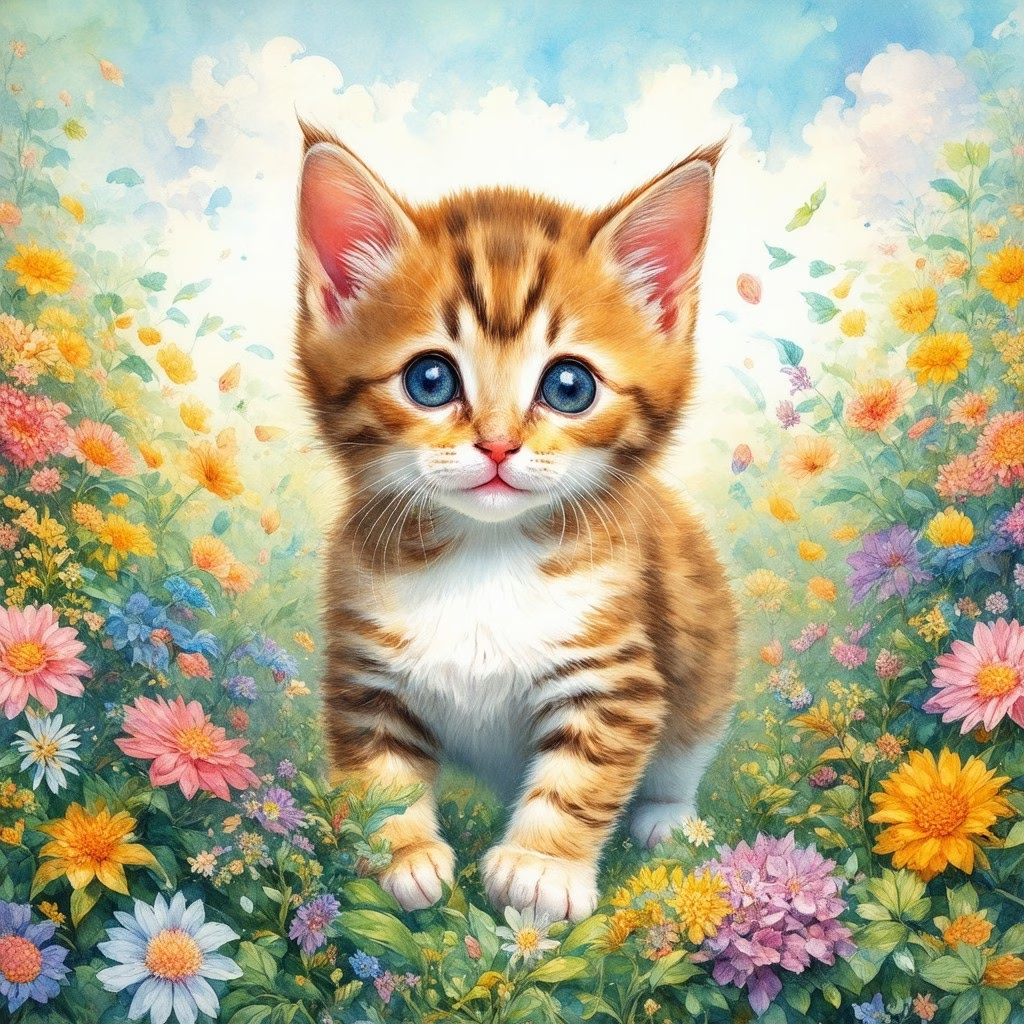
Is Grain Free Better for Cats with Sensitive Stomachs?
When considering whether grain-free diets are better for cats with sensitive stomachs, it’s essential to understand the underlying factors that contribute to digestive health in felines.
Grain Free Solutions for Sensitive Stomachs
Grain-free kitten food can be a suitable option for cats experiencing digestive issues. Here are several reasons why:
- Digestibility: Grain-free cat foods often contain higher protein levels and fewer carbohydrates, which can be easier for cats to digest. Cats are obligate carnivores, meaning their digestive systems are optimized for protein rather than grains. A study published in the Journal of Animal Physiology and Animal Nutrition highlights that diets lower in carbohydrates can lead to improved digestion and nutrient absorption in cats.
- Allergies and Sensitivities: Some cats may have sensitivities or allergies to grains such as wheat, corn, or soy. Grain-free options can help alleviate symptoms like vomiting, diarrhea, and excessive gas. According to the American Veterinary Medical Association, identifying and eliminating allergens from a cat’s diet can significantly improve their gastrointestinal health.
Best Grain Free Kitten Food for Digestive Health
Choosing the right grain-free kitten food is crucial for promoting digestive health. Here are some top-rated options:
- Wellness Core Grain Free Kitten Food – Known for its high protein content and quality ingredients, this food supports overall health and digestion.
- Open Farm Grain Free Kitten Food – This brand emphasizes ethically sourced ingredients, making it a great choice for health-conscious pet owners.
- WholeHearted Grain Free Kitten Food – Offers a balanced diet with essential nutrients tailored for growing kittens.
- Simply Nourish Grain Free Kitten Food – Focuses on natural ingredients that are gentle on sensitive stomachs.
Before making any significant changes to your cat’s diet, it’s advisable to consult with a veterinarian. They can provide tailored recommendations based on your cat’s specific health needs and dietary requirements. By selecting high-quality grain-free kitten food, you can help ensure your feline friend maintains optimal digestive health.
Grain Free Kitten Food Wet
When considering the best nutrition for your kitten, wet grain free kitten food offers several advantages that can enhance their overall health and well-being. This type of food is not only appealing to kittens due to its texture and flavor, but it also provides essential hydration, which is crucial for their development.
Benefits of Wet Grain Free Kitten Food
- Hydration: Wet grain free kitten food contains a higher moisture content compared to dry options, helping to keep your kitten hydrated, which is vital for their kidney health.
- Palatability: Many kittens prefer the taste and texture of wet food, making it easier to encourage them to eat, especially during the weaning process.
- Nutrient Absorption: The moisture in wet food can aid in the digestion and absorption of nutrients, ensuring that your kitten receives the maximum benefit from their diet.
- Weight Management: Wet food can help prevent overeating as it is often lower in calories than dry food, which is beneficial for maintaining a healthy weight.
Best Wet Grain Free Kitten Food Brands
When selecting the best wet grain free kitten food, consider brands that are known for their quality ingredients and nutritional value. Some top-rated options include:
- Wellness Core Grain Free Kitten Food – Known for its high protein content and natural ingredients.
- Open Farm Grain Free Kitten Food – Offers ethically sourced ingredients and a variety of flavors.
- Fancy Feast Grain Free Kitten Food – A popular choice among pet owners for its taste and affordability.
- WholeHearted Grain Free Kitten Food – Provides a balanced diet with a focus on high-quality protein sources.
For more insights on kitten nutrition, check out our article on healthy eating for cats and kitten care.
Grain Free Kitten Food Dry
Advantages of Dry Grain Free Kitten Food
Dry grain free kitten food offers several advantages that can benefit both kittens and their owners. One of the primary benefits is convenience; dry food is easy to store, measure, and serve. Additionally, it has a longer shelf life compared to wet food, making it a practical choice for busy pet owners. Dry grain free kitten food also promotes dental health by helping to reduce plaque and tartar buildup as kittens chew on the kibble.
Another significant advantage is the high protein content typically found in grain free formulas. These diets often feature meat as the primary ingredient, which is essential for a kitten’s growth and development. Brands like Wellness Pet Food and Chewy offer options that are rich in animal protein, ensuring that your kitten receives the necessary nutrients for optimal health.
Best Grain Free Kitten Food Dry Options
When searching for the best grain free kitten food dry options, several brands stand out due to their quality ingredients and positive reviews. Here are some top-rated choices:
- Wellness CORE Grain Free Kitten Food: Known for its high protein content and natural ingredients, this formula is a favorite among pet owners.
- Open Farm Grain Free Kitten Food: This brand emphasizes ethically sourced ingredients and offers a variety of flavors to keep your kitten interested.
- WholeHearted Grain Free Kitten Food: Available at Woolworths, this option provides a balanced diet at an affordable price.
- Fancy Feast Grain Free Kitten Food: While primarily known for wet food, their dry options are also popular and well-reviewed.
- Simply Nourish Grain Free Kitten Food: This brand focuses on wholesome ingredients and is often recommended in Reddit discussions about kitten nutrition.
Choosing the right dry grain free kitten food can significantly impact your kitten’s health and well-being. Always consult with your veterinarian to determine the best diet tailored to your kitten’s specific needs.

